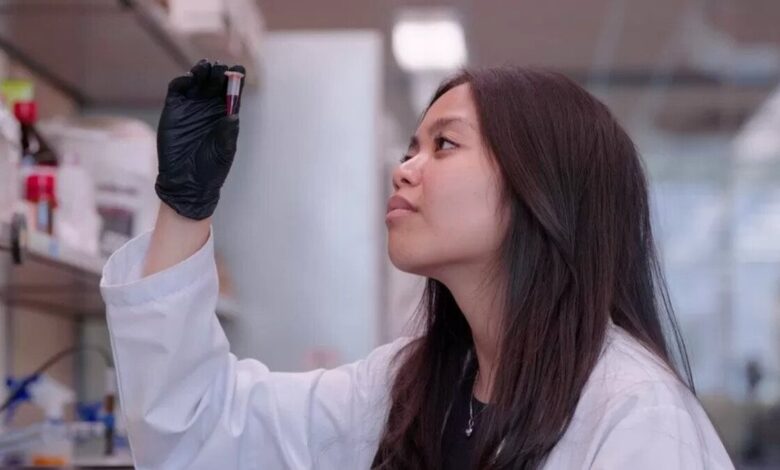
Scientist Denise Catacutan working on the experimental antibiotic discovered with the help of artificial intelligence. Image Credit: McMaster University
Health USAAI Plays a Revolutionary Role in Medicine
The discovery of a new antibiotic by American and Canadian scientists is the latest example of the powerful and game-changing role artificial intelligence (AI) can play in medicine and in the development of new drugs.
“This finding further supports the premise that AI can significantly accelerate and expand our search for novel antibiotics,” explains Prof James Collins, from the Massachusetts Institute of Technology.
An experimental antibiotic called abaucin has been discovered, one that has the potential to cure patients infected with Acinetobacter baumannii, one of the most problematic species of bacteria identified as a “critical” threat by the World Health Organization. Thousands of drugs with known precise chemical structures had to be manually tested on A. baumannii, then fed into the AI so to learn the chemical features of effective drugs on the bacterium. A total of 6,680 compounds of unknown effectiveness were processed through AI. In a short hour and a half, a shortlist of 240 compounds was produced. Nine potential antibiotics were found, including the incredibly potent abaucin. AI can screen millions of potential compounds, a task virtually impossible to do manually, thus massively accelerating the discovery of new drugs.



